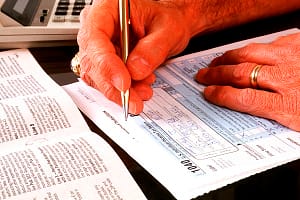You don’t need to be a fintech guru to know that NFTs are currently a big trend in the digital sphere. NFTs are digital assets representing real entities such as art, music, videos, etc. The popularity of NFTs has skyrocketed over the last year. As with any new pop culture phenomenon, NFTs also bring potential problems.
With the growing interest in this pop culture phenomenon, European lawmakers have identified the possibility of money laundering with the use of NFTs. The worry is that NFTs could be used to launder money anonymously and untraceable. This has come to light as the European Union has been working on updated regulations that have the potential to impact the cryptocurrency market significantly. Part of the European Parliament have put forward an amendment to include NFTs in the anti-money laundering section. This amendment forms part of a bigger movement to prevent abuse of financial systems with the intention of money laundering or terrorism.
Overall, there has been a big effort to clamp down on crypto with an increase in regulation.The European Parliament and the Council of the European Union have also decided on a provisional agreement on the Transfer of Funds Regulation (TFR) that ensures cryptocurrency transfers are traceable and that transactions that are flagged as suspicious are blocked. This could potentially pave the way for stricter enforcement by the EU.
NFTs have created quite the buzz with people investing millions into this pop culture phenomenon. With artists like Beeple selling their NFT for 69.3 million US Dollars, equivalent to roughly 38528 ETH. With people investing this kind of money in NFTs, it’s no surprise that NFTs pose a threat with regards to scams and money laundering. This applies to both scammers who want to move assets around, and scammers looking to con unsuspecting people online.
The simplest way to tell if there is a chance of money laundering through trade is to check to determine if the transaction’s price is reasonable given the item’s fair market value. The difficulty, however, comes in with how immature and erratic the NFT market is, making it difficult to determine what a fair market price should be especially given that there are no precedents to make use of as a guide.
NFTs earn their value through being a verified copy of a digital asset. For example, the NFT version of a celebrity’s first ever tweet can be identified through an individual alphanumeric code that is also recorded on the blockchain. Although there can be multiple NFTs of the same asset, each copy needs to have a code to verify its authenticity, the same way a piece of art would be accompanied with provenance. Despite these transactions being recorded on a public ledger, purchasers may choose to remain anonymous, creating the perfect environment for anyone looking to discreetly wash their assets. The problem is that there is currently no mechanism in place that prevents money launderers from creating multiple accounts and transferring assets between these accounts to cover their digital trail.
To avoid getting caught up in NFT scams, money laundering issues the volatile nature of NFT’s use a system like Bitindex Prime to trade in the slightly less volatile space of crypto. This Bitcode Prime review explains how easy cryptocurrency trading has become, especially for new traders with no experience. Investors are able to buy cryptocurrency and withdraw profits at any given time. With NFTs, investors have links to an asset that is hosted somewhere else. The NFT doesn’t alter who owns the asset or who has the right to copy, store, or use it.
While there is no evidence that NFTs will provide a playground for scammers and money launderers, they still pose a threat due to the lack of legislation surrounding the NFT market. If officials secure the proposed regulations, it will be easier to keep tabs on NFTs and avoid encouraging scammers to use NFTs with malicious intent.
The above information does not constitute any form of advice or recommendation by London Loves Business and is not intended to be relied upon by users in making (or refraining from making) any investment decisions. Appropriate independent advice should be obtained before making any such decision. London Loves Business bears no responsibility for any gains or losses.






Leave a Comment